
Flowers for Martisor: EU helps pupils of Moldova to grow flowers for spring holiday
Pupils of the ‘Grigore Vieru’ Primary School in the city of Stefan-Voda in the Republic of Moldova have decided to hurry the arrival of spring by planting flowers in their school, as part of an activity support by the EU4Youth Programme.
Back in December 2019, at the beginning of winter, pupils, guided by teachers, began to plant bulbs of hyacinths, daffodils, tulips and crocuses.
For the first few days, the planted bulbs were kept in a dark room, to acclimmitise them to the new conditions. After two weeks, they were brought out and distributed among the classrooms.
As the coordinator of the project, Mrs. Galina Iuras explained: “The main difficulty was our rush to move the flowers from the dark to daylight. It shortened their rest time and they started to grow faster than we thought.”
Within days of being planted, shoots began to sprout. Pupils’ interest grew once they saw the first yellow-green leaves emerge.
“Through this activity, students have learned how to plant a flower and how to care for it,” Mrs. Ludmila Turcan, another teacher at the school.
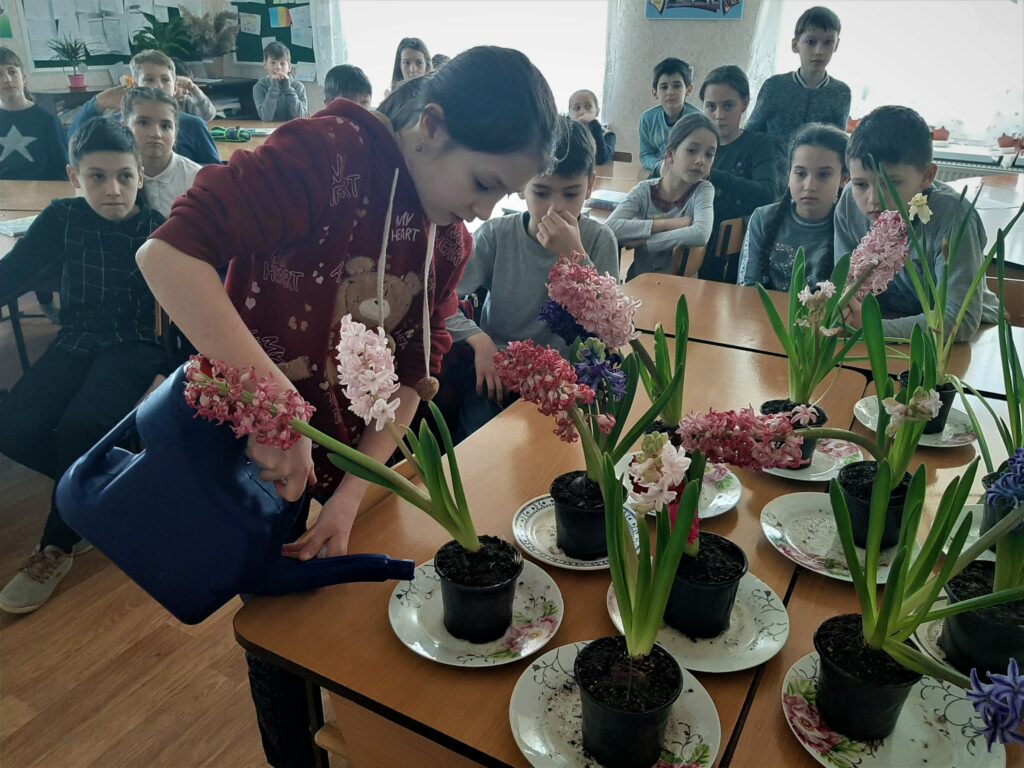 One of the students, Gloria Arnaut is watering the blooming hyacinths
One of the students, Gloria Arnaut is watering the blooming hyacinths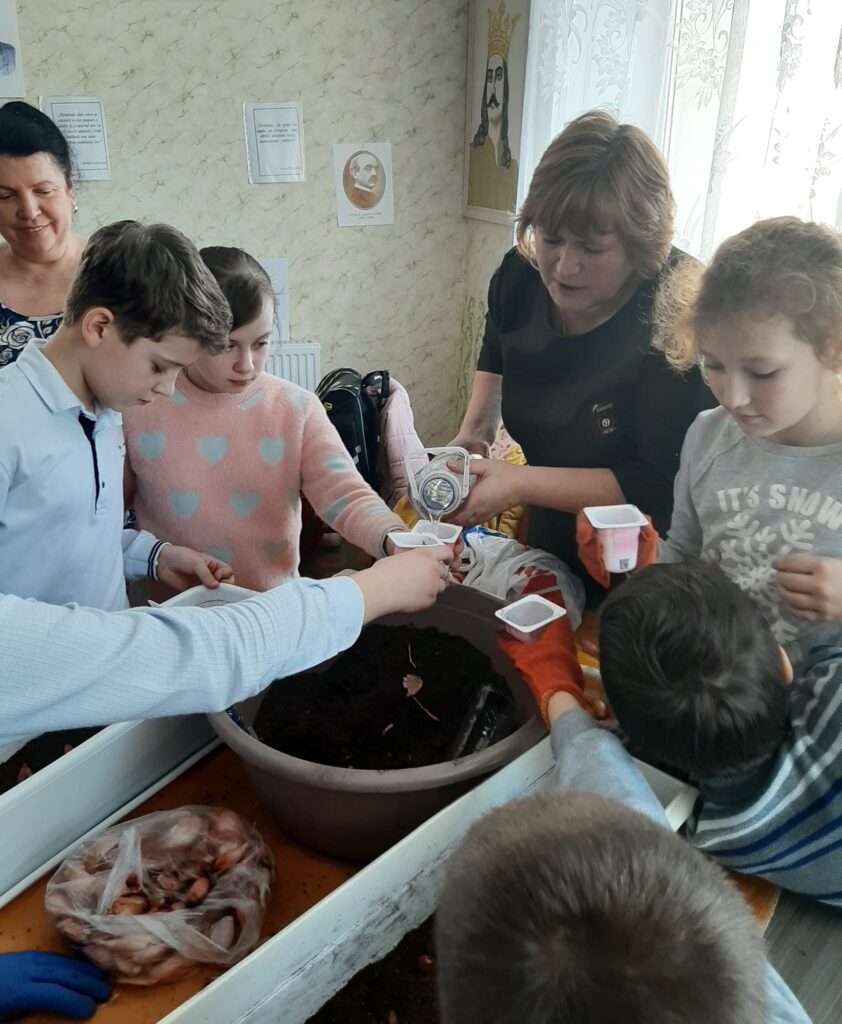 Local project coordinator and Teacher Mrs. Galina Iuras is explaining and assisting pupils Zavalisca Andreea, Cristian Bragarenco, Spinenco Daniela, Nichitovschi Gabriela, Talmazan Mihail, Bargan Oleg, Carina Aliev in flower planting
Local project coordinator and Teacher Mrs. Galina Iuras is explaining and assisting pupils Zavalisca Andreea, Cristian Bragarenco, Spinenco Daniela, Nichitovschi Gabriela, Talmazan Mihail, Bargan Oleg, Carina Aliev in flower planting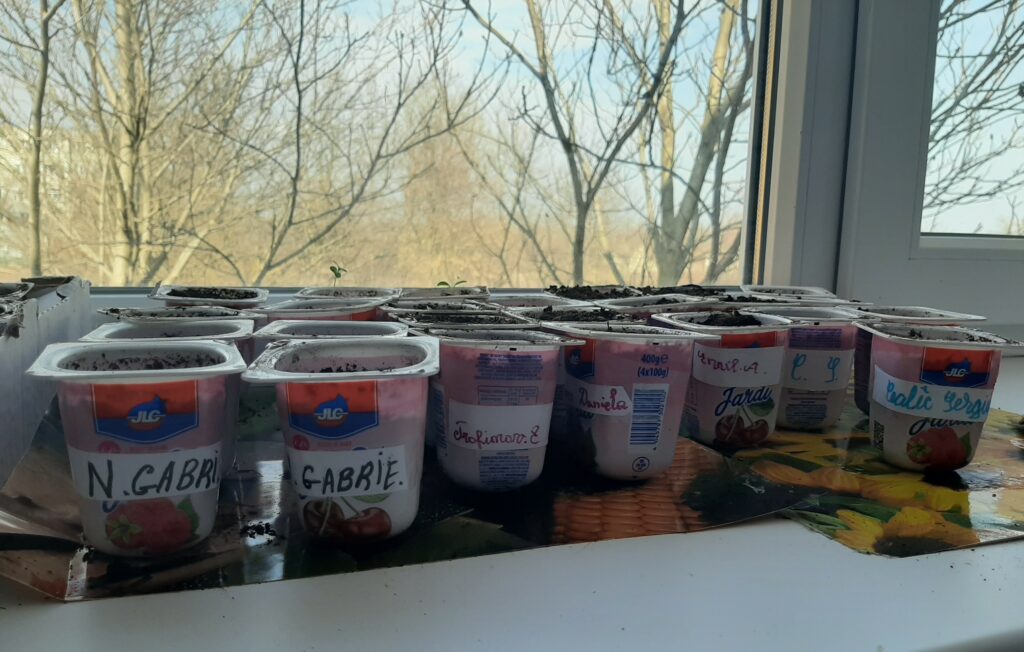 Flower pots planted by the pupils in recycled and reused yoghurt pots. Each pot is signed by the pupil that has planted it and everyone takes care of his/her own planted flower
Flower pots planted by the pupils in recycled and reused yoghurt pots. Each pot is signed by the pupil that has planted it and everyone takes care of his/her own planted flower
During the growth period, students noted in a table the changes that they observed.
Almost 150 pupils and 7 teachers took part in this activity, which was organised under the “EU4Youth: “School Garden” for Agricultural Entrepreneurship” project, implemented at the school since 2019.
“The children are very curious. When they come into the classroom in the morning, they run to the flowers to see what changes have occurred since the day before,” says teacher Liuba Chetrari.
The first flowers began to unfold in early February 2020, anticipating the calendar spring.
In the last week of February, the school began to sell the flowers to residents in Stefan-Voda for Mărțișor, a national holiday that traditionally marks the beginning of spring on 1 March. The word Mărțișor is the diminutive of Martie, the old popular name for March, and literally means “Little March”.
“I wanted to share with my mother a fresh flower that had been grown by me,” says Gloria Arnaut, one of the students involved in the activity.
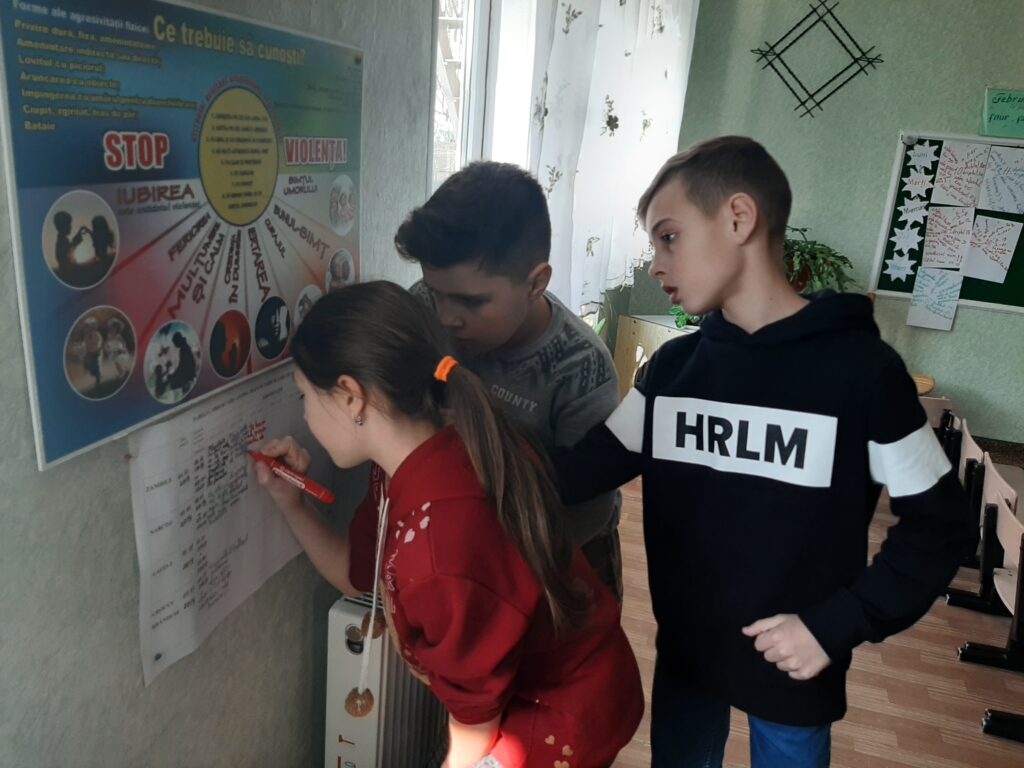 Students Railean Maxim, Arnaut Gloria and Cazacenco Ion are writing down their observations on the flowers’ growth
Students Railean Maxim, Arnaut Gloria and Cazacenco Ion are writing down their observations on the flowers’ growth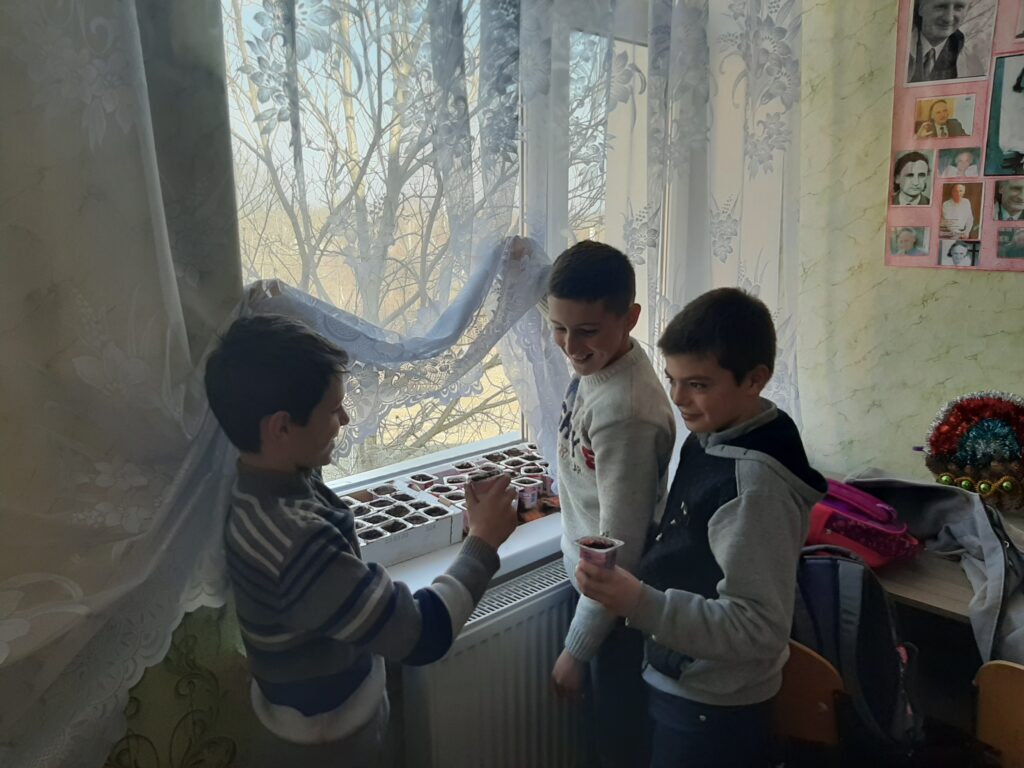 Each morning before classes Cristan Bragarenco, Talmazan Mihail, Bargan Oleg are hurrying up to see what happened with the plants overnight
Each morning before classes Cristan Bragarenco, Talmazan Mihail, Bargan Oleg are hurrying up to see what happened with the plants overnight
The money raised by selling the flowers will be used for school activities. “Pupils will know that the goods bought are from the money they worked for,” says Aurelia Cornitel, a teacher at the school.
Now, the students are planting onions and other bulbs to have green vegetables and vitamins on their spring plates. Also, with the coming of spring, students will move to greenhouse and open field activities, planting summer flowers and vegetables for the school canteen.
Growing the flowers for Mărțișor brightened the winter for pupils and fostered their motivation and interest in agriscience. In addition to developing practical and theoretical skills on flower growth, the children also developed entrepreneurial skills, being directly involved in the flower marketing activity, under the supervision of their teacher.
Author: Elena Culighin
The project ‘EU4Youth: School Garden for Agricultural Entrepreneurship’ aims to foster the employability and active participation of young people residing in disadvantaged rural areas of Belarus, Ukraine and Moldova by developing modern labour, leadership and entrepreneurial skills, and promoting new professional opportunities among them.
The EU4Youth Programme supports the employment opportunities and active citizenship of young people in the six Eastern Partnership countries: Armenia, Azerbaijan, Belarus, Georgia, the Republic of Moldova and Ukraine.
MOST READ
SEE ALSO

No, time is not on Russia‘s side

How to open an art business in Moldova: the experience of Alexandra Mihalaș

Be one step ahead of a hacker: check simple cybersecurity tips!

How to act and move on: strategies for women facing discrimination and online harassment
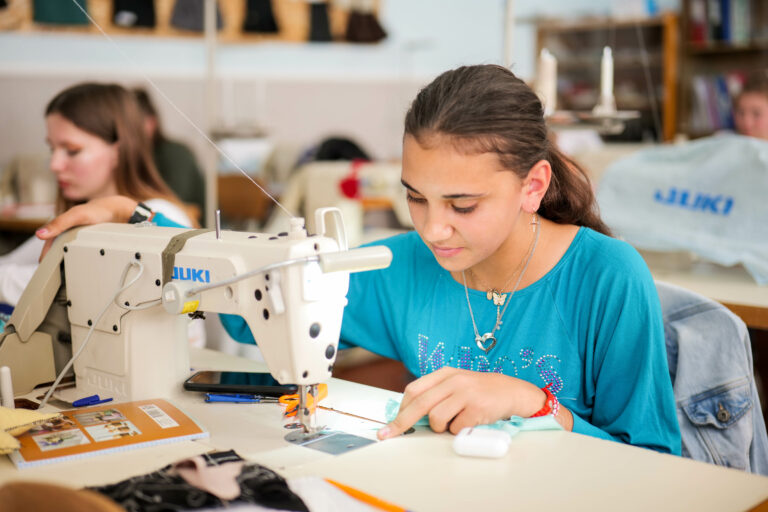
‘Learning is not a process but a journey’: the example of a school in Orhei
More campaign pages:
Interested in the latest news and opportunities?
This website is managed by the EU-funded Regional Communication Programme for the Eastern Neighbourhood ('EU NEIGHBOURS east’), which complements and supports the communication of the Delegations of the European Union in the Eastern partner countries, and works under the guidance of the European Commission’s Directorate-General for Neighbourhood Policy and Enlargement Negotiations, and the European External Action Service. EU NEIGHBOURS east is implemented by a GOPA PACE-led consortium. It is part of the larger Neighbourhood Communication Programme (2020-2024) for the EU's Eastern and Southern Neighbourhood, which also includes 'EU NEIGHBOURS south’ project that runs the EU Neighbours portal.

The information on this site is subject to a Disclaimer and Protection of personal data. © European Union,







